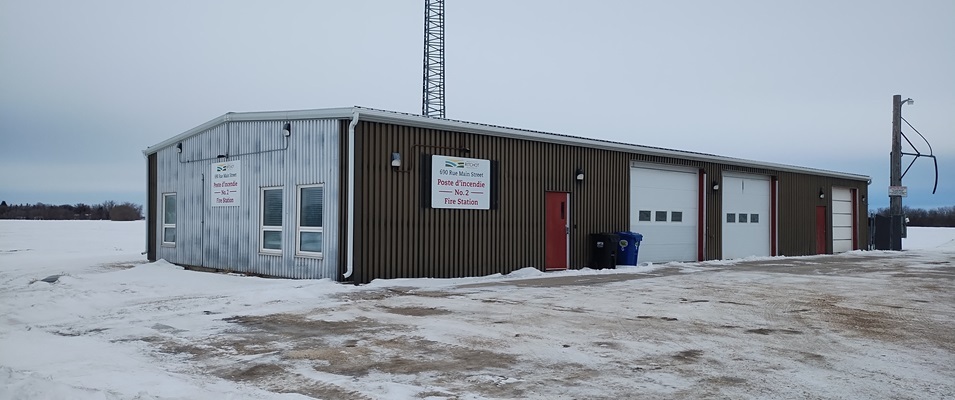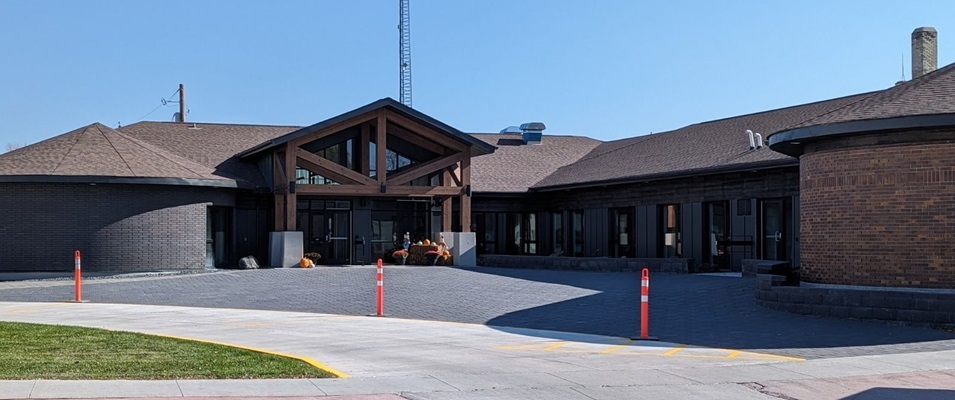
Ritchot’s council met on the evening of January 22 to address a variety of items on their agenda.
Council welcomed a new youth delegate to the council table, Jessica Saini. This is the second year that council has sought a youth representative to sit and observe council.
Fibre Optic Grant
Mayor Chris Ewen explained their office is putting together an application for the Connect to Innovate federal grant program. According to the Government of Canada website, Connect to Innovate “will invest $500 million by 2021, to bring high-speed Internet to 300 rural and remote communities in Canada.”
“If we got the Connect to Innovate grant, it means we would be able to install a fibre optic internet connection in our area, instead of connecting to a tower, which would be a good thing for our area,” said Ewen.
Subdivisions Seeking Variances
Council approved a request for variance request from Kyle and Christina Bially to change the minimum lot size of their lot from 80 acres to 31 acres to facilitate the development of an existing subdivision.
Because of the location of the subdivision, which includes lots both within and outside of the town dike, the developers noted that the variance is required to ensure the lot sizes will not be found at fault with the town’s existing requirements.
CAO Mitch Duval explained how this variance impacts a previously approved permit, but that it “just clears up the paperwork to move forward what is already in place.”
Northeast of St. Adolphe, another subdivision is in the works for some property along Highway 210. The background work for the subdivision had already begun applications with the RM, but these were put on hold because the builders wanted to revise their plan.
The location adds four new residences located off the highway and council discussed a few concerns regarding a new access road or multiple driveways.
“Are we not concerned about the number of new driveways on 210?” asked Councillor Janine Boulanger.
“They’re not building four new driveways or a service road,” said Mayor Ewen. “It will be two split-shared driveways. The split-shared driveways meet the requirements of Manitoba Department of Highways.”
Council to Pursue Water Pipeline Upgrades
Discussion turned to a possible pipeline twinning project that would see water treatment and well mechanisms upgraded, bringing better water across the municipality. The project, which would cost $450 million, is eligible for funding from the federal Building Canada fund under Infrastructure Canada.
“Seven kilometres are covered by this grant, but that is only half of what is needed,” said Duval. “We should look into soliciting bids for the project and begin to price out what is needed for the rest of the project. Manitoba Water Services and the RM could share the remaining costs. If they are too high, we may have to pass on this project, but we’ll see.”
Two councillors commented that if the RM waits on this project, it may come around at a time when it is necessary, but with a higher price tag as costs will likely rise.
“In my opinion, it’s in our best interests to do it right now,” said Councillor Curtis Claydon.
“If we wait, rates for tenders will only increase,” said Councillor Ron Mamchuk.
“We would really like to see this project proceed as it benefits residents in both St. Adolphe and Île-des-Chênes,” said Duval. “If all the grants phase into place, I don’t foresee a problem financially. The RM is in a very healthy state financially right now. If we move forward, we’ll be good for years and years to come.”
Ritchot to Support Inclusivity for Immigrants
The RM was recently approached by the coordinator for Eastman Region Immigration Partnerships (ERIP), who made a presentation to CAO Duval and Mayor Ewen.
According to their website, the ERIP program works with “communities to bring together diverse stakeholders to collaborate on and coordinate local strategies and plans for welcoming, settling and integrating immigrants and refugees. They are not direct service providers, but rather coordinators of local initiatives that involve actors from the host community and newcomers in partnership to build a community that is welcoming and inclusive.”
Ewen explained that at this time the representative from ERIP did not have any direct requests from the RM, but just wanted to ensure council would be supportive if the program would begin to operate within the RM.
The ERIP program would help start up a Local Immigration Partnership (LIP), which they describe as “multi-sectoral planning tables that bring a cross-section of stakeholders together to identify ways in which to support settlement and integration of immigrants into local communities.” ERIP receives funding from Immigration, Refugees and Citizenship Canada (IRCC) to start up LIPs.
Currently, there are 77 LIPs across Canada, but only four in Manitoba. Both Ewen and Duval expressed support for the program operating within Ritchot.
“Any support council could offer would go well toward their project,” said Ewen. “This is for speakers of any language, any background, immigrants from any culture, and we need diversity in Ritchot, so I think this is a good thing.”




















